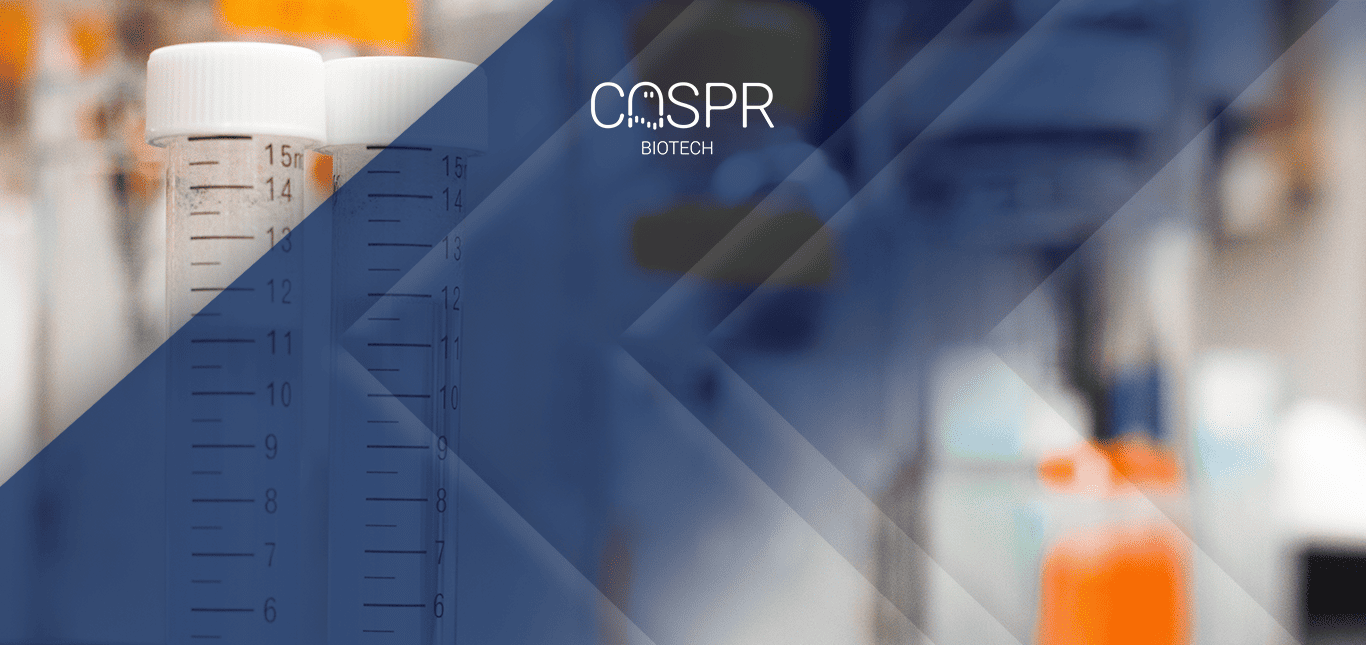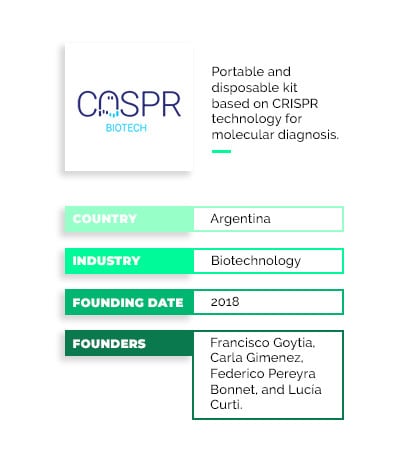
Por Carolina Zepeda
November 26, 2019
Contxto – Sometimes technology and healthcare can be limited to a small and expensive laboratory. That makes CASPR Biotech’s gambit to bring the world’s medical technologies to the patient’s doorstep an intriguing one.
And this Argentinian startup certainly seems to be revolutionizing the way health diagnostics are done. Consider its use of CRISPR—gene editing—technology. CASPR aims to deliver a portable device to a patient’s home so that health professionals can detect their condition within minutes. But the magic comes later, where the doctors may eventually be able to conduct the needed procedure remotely.

Access to lab equipment, qualified staff, and supplies are fundamental when successfully running any molecular diagnostic. Sadly, sometimes the people who need it the most don’t have access to all this lifesaving tech.
“The problem is further accentuated in developing countries that do not have this type of infrastructure and therefore cannot perform this type of analysis on their population,” shared CASPR Biotech through email correspondence.
The startup is looking forward to helping these communities get the healthcare they need.
CASPR biotech is based on CRISPR. A newly discovered technology that caused a great furor around the world due to its potential to literally change the genes in your body.
The medical community now considers CRISPR to be the “biotechnological tool” of the future. CASPR points out that this is the first time humans will have direct control over their own genetic makeup. CRISPR can have applications in multiple fields such as human healthcare and biosecurity. Not to mention, the agricultural and livestock industries.
CASPR uses this technology to identify particular DNA sequences related to infectious diseases or genetic mutations. All this by taking advantage of the surgical precision that characterizes the CRISPR gene editing tool.
The startup integrated CRISPR into a portable and disposable device to identify particular DNA sequences. These are pre-configurated in order to specifically detect what specific action is needed. With it, disease detection will be taken to the next level.
“Caspr is one of the few startups in the world that is using CRISPR for detection.” Indeed, up til now, the company has patented new CRISPR enzymes, which have the potential to improving key diagnostic variables such as sensitivity, specificity and stability.
The novelty may have its drawbacks on a more macro level, however. Where much of this technology stands is legally fuzz. Particularly so in countries famous for lax and slow to catch up regulatory systems. Think the retrospective legal nightmare of “regularizing” Uber.
It all started with scientists Carla Gimenez, Federico Pereyra Bonnet, and Lucía Curti. A leading pioneer team that had been working for over five years with CRISPR. It was not until 2018 that the group “internalized in the new application that could be given to CRISPR as a molecular diagnostic tool,” said CASPR.
“They convinced themselves that this would be something of great potential and impact in the region.”
Later on, Franco Goytia, an entrepreneur came into the picture. His business background and previous experiences fit perfectly with this startup’s needs. This mix of brains and brawn was just what the doctor ordered, and the project got off the ground.
“The team considers that a startup is an ideal tool to link their scientific research with its technological application,” CASPR told Contxto.
And that’s how at the beginning of 2019, CASPR Biotech was born. Receiving in this initial stage funding through big bio-investors such as GridX (US$200 thousand) and IndieBio (US$250 thousand).
Currently, the startup is working on its go-to-market strategy in Argentina and Brazil. They then plan to expand into Latin America and beyond from there.
CASPR has already worked with a variety of hospitals, all the while validating the effectiveness of its technology. For example, recently, it developed a Dengue protection kit for the Albert Einstein Hospital in Sao Paulo.
Additionally, CASPR is working on the automation of these kits, in order to make them even easier to use. Their market focus sees hospital diagnostics as their main business sector, while concentrating on their efforts on the most infectious diseases in Latin America.
Moreover, the team is already working with industrial companies by offering them pollutant and species detection services in their processes.
“In the future, once traction in human health diagnosis is achieved, the company plans to scale towards other industries such as livestock, agriculture, and even biosecurity,” stated CASPR. “The vision is to build a precise molecular detection solution that can be applied directly in agricultural fields.”
Even though now its business model is exclusively B2B (business to business), in the future, there’s the possibility of adding a B2C (business to customer) strategy. What will the rancid, old, coffee-table book industry do with all those empty doctor’s offices then?
-CZ

Por Yanin Alfaro
March 25, 2025

Por Contxto
May 27, 2024